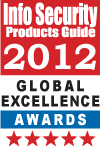From around the blogosphere…
In recent months security breaches and PCI compliance have been blogged about all over the Internet …still. Here are three more we thought were insightful. P.S. check out our PCI-DSS Resource tab
ZDNet
Will the real [Breach X] please stand up?
Mike Rothman did a guest post for Zero Day this week. We all remember the Heartland breach (who could forget)…well another breach has occurred, allegedly on the same scale. Mike refers to this breach as breach X, because no information has been released. There is a high likelihood that your credit card data has been compromised as a result of either Heartland or Breach X.
Emergent Chaos
Security Breach Notification Symposium
A Security Breach Notification Symposium will be held next Friday, March 5th. Our friend from Emergent Chaos will be speaking at it. The symposium begins with a session on California’s security breach law and continues with a look at current research and proposed reforms by the state’s top policy makers and scholars.
Network Security Blog
Evaluating the cost of PCI
The cost of implanting PCI requirements add up pretty quick. Martin McKeay points us to two articles on how to implant these requirements reasonably—What are PCI “Best” practices: Saving Money or Improving Security? And Cost of PCI Compliance. Let us know what you think.





